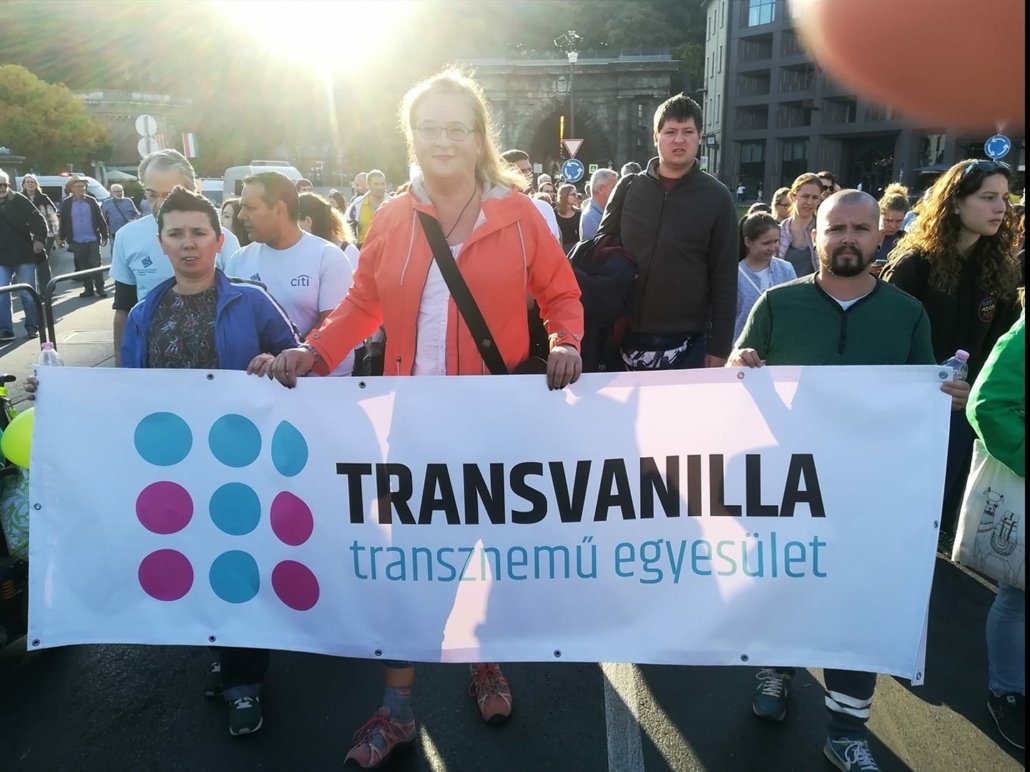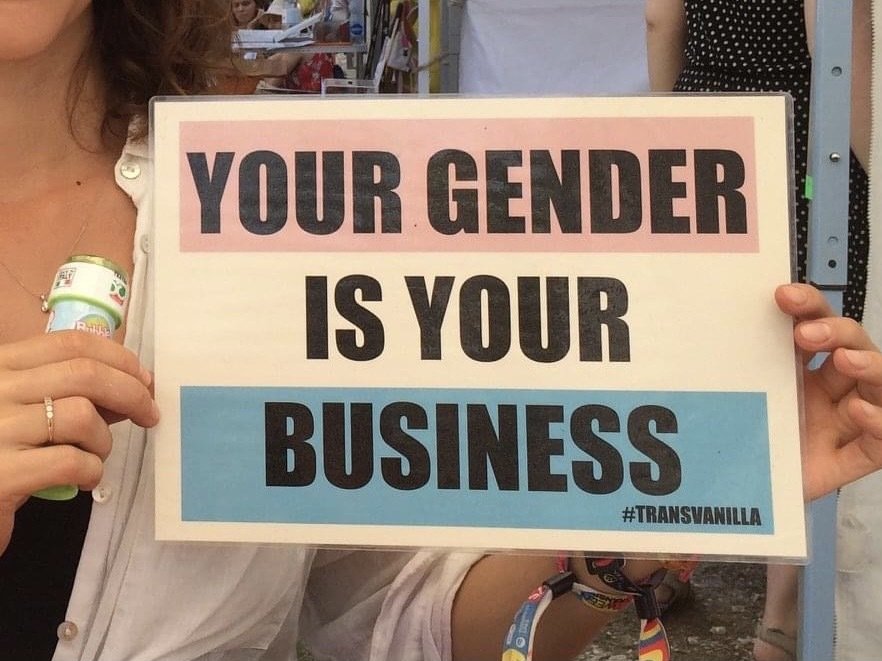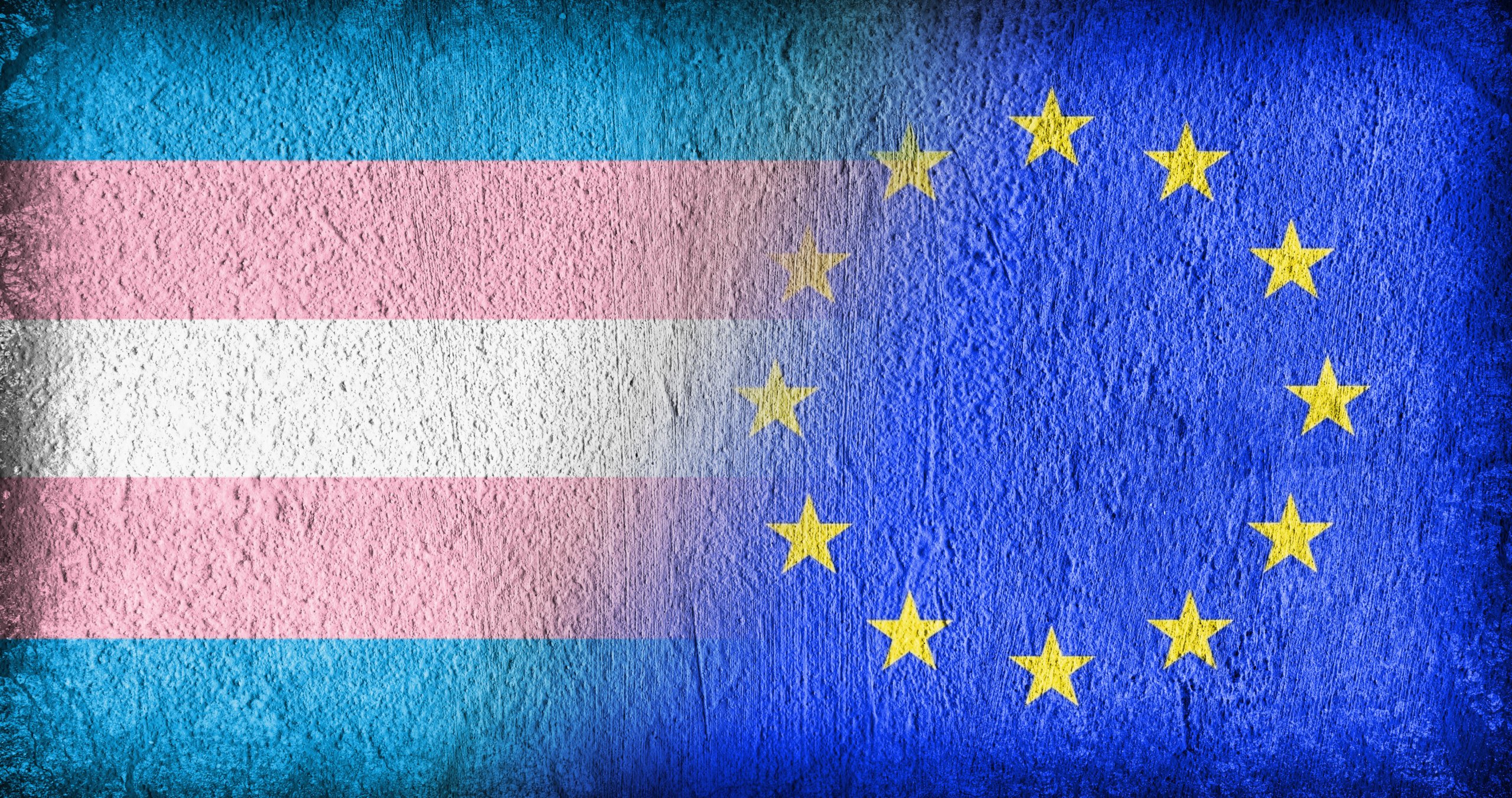 676
676  7 mins
7 mins Hungary has a decade-long history of declining LGBTQ rights.
In 2012 the country was ranked 9th out of 49 countries in Europe and Central Asia for LGBTQ rights.
It has since dropped to 27th place.
This precipitous decline of LGBT rights coincides with the rising power of prime minister Viktor Orbán and his coalition government. Trans people are being targeted in particular and the erosion of rights continues.
CW: transphobia
Transvanilla Transgender Association
The Transvanilla Transgender Association is fighting for the rights of trans people in Hungary. Transvanilla is the only NGO in Hungary that is trans-led.
We reached out to them to understand how they are fighting for their community’s rights, livelihoods, and safety amidst this worsening situation.
This article is the first part of a 2 part series reporting on trans rights in Hungary. It focuses on the environment and events that lead up to the 2020 law banning Gender Recognition.
It is also part of The Inspirer’s ongoing series to balance the media portrayal of trans people and lives.

The power to rule by decree
In early 2020, pandemic fears were running high.
On March 30th of that year, the Hungarian Parliament voted to give Orbán the power to rule by decree.
The stated intention of the law was to avoid assembling the Parliament until the “state of danger” posed by the coronavirus had passed.
The opposition was concerned.
The law could obviously open the door to abuses of power.
Their concern was well-founded.
Gender recognition
The day after obtaining the ability to rule by decree, the government introduced a law that targeted the rights of trans people.
The cruelty of the timing was lost on no one.
March 31st is the “International Transgender Day of Visibility”. This annual event is dedicated to celebrating trans people and their contributions to society.
This was the day that the government chose to introduce a law banning gender recognition.
The ban made it impossible to make changes to the gender that appears on a birth certificate.
For those unfamiliar with the subject, “gender recognition” is crucial for transgender people.
A transgender person has a gender identity that is different from the gender that was assigned at birth.

Transvanilla Facebook
Since birth certificates are vital identity documents, this difference is the source of many problems for transgender people.
Changing the gender on one’s documents can be complex and difficult.
Different authorities are responsible for producing different documents – birth certificate, driver’s license, passport, school records, or medical records for example.
And documents that do not match obviously cause a great deal of difficulty.
Everyday acts like applying for a job, a school, insurance, opening a bank account, receiving healthcare, interacting with the police, obtaining housing, or boarding an airplane provoke questions.
These situations lead to misunderstanding, confusion, embarrassment, harassment, and in some instances, threats or violence.
Official recognition of their identity can mean the difference between participating freely in society or living a life of exclusion.
For these reasons, having identity documents that match one’s gender is a basic human right.
So much so that the Council of Europe requires that its 47 member states allow legal gender recognition.
The ban
By banning people from modifying their identity documents, the Hungarian government was deliberately attacking trans people and endangering their livelihoods.
“The reasoning used to justify the law” explains Tina Kolos Orbán, Transvanilla’s Vice President, “was that gender is easily defined when someone is born.”
Gender – “F” for Female and “M” for Male – is assigned by a doctor, usually based on the appearance of a baby’s genitals at birth. “The law says that once the gender is registered, it cannot be changed.”
The government claims that the law is impartial, that it fairly treats all citizens in the same manner. Tina Kolos disagrees, “They disingenuously argue that the law does not discriminate against trans people. They say, ‘This is a law that applies to everyone. Trans people supposedly may continue to live however they want to live.’ But in reality, this law directly affects every aspect of a trans person’s life and threatens their wellbeing and safety.”

Adiany Montelo / Shutterstock
The Inspirer: Before we go further about the situation for trans people in Hungary, tell us about Transvanilla. How did the organization start? How has your mission changed over time?
Tina Kolos Orbán: Transvanilla started back in 2004 when someone important to me was transitioning. Back then there was no information available on the process. So we developed a website. It was the middle ages of the internet (laughing) and we had a forum where people registered to talk.
Then we started meeting in person.
Although there were LGBT organizations in Hungary, there wasn’t any trans-focused specific organization.
So in November 2011, we registered Transvanilla as an NGO.
Transvanilla is an organization that has an understanding of being trans as a broad issue and term.
We do not just serve trans people, but all gender non-conforming people.
This is because we don’t see trans issues as only affecting trans people.
Discrimination and hate crimes happen based on gender expression. We see that gender non-conforming people face similar problems to trans people.
This has always been very clear for us.
We started as a community-based, grassroots NGO.
Our vision was to activate change in Hungary. There were three areas where we wanted to have an impact.
The vision is to achieve legal, medical, and social changes for trans people.
We want to change the legal system regarding legal gender recognition and we want to change trans-specific healthcare and healthcare in general for that matter.
We want to have a positive impact on society.
Now, almost ten years later, we have transformed.
Today we are more of an advocacy-type of organization.
We had no idea that the situation in 2021 would be like this.
We did know that the government was not LGBT-friendly.
But everything definitely changed last year when the ban of legal gender recognition put trans issues directly into the spotlight.

OK, so explain to us what is happening with the change in law regarding gender recognition. Can you explain the history and how we got here?
TO: Well, first of all, when Transvalilla started around 2004, it was possible to change legal gender. The government had even announced upcoming legislation for national trans-specific healthcare and legal gender recognition.
Soon after, people were able to change their birth certificates. But unfortunately, the government back then never passed any specific legislation or guidelines.
But, individuals could address the relevant ministries and request legal gender recognition with a medical diagnosis since 2004.
Looking back at it, it was rather revolutionary back then.
Then, around 2011, the fact that there was no specific legislation on the books began to become a problem.
Different issues began to arise. It became more complicated to get birth certificates changed. And with no official process in place, there was nowhere to go to make complaints or seek redress.
Working for recognition
In 2014, Transvanilla began doing silent advocacy.
We knew that the government was not LGBT-friendly. So we didn’t want to make this a public issue.
We began to engage behind the scenes with the ministries and other authorities in Hungary. We had a great ally in the Commission Of Fundamental Rights of Hungary. They even went as far as to publish a report on the issue.
Our objective was simply to get the government to pass a law. Our thinking was that we imagined that any law that was passed most probably wouldn’t fit our needs. But if there was a law on the books we could then attack it and work to change it.
But without any legislation, the situation was unstable and they could reverse their position at any time.
And that is what they did.
In 2017, a sentence added to the law on registries was supposed to regulate the application process of legal gender recognition. It was vague and confusing so the bureaucracy soon began to stall the applications.

MyImages – Micha/Shutterstock
The courts weigh in
There was no recourse to file a formal complaint in Hungary. So in 2018, we went to the European Court Of Human Rights.
Then, once again, our government started evaluating applications and applicants now began to receive new birth certificates. Applicants now began to receive new birth certificates.
After a few months, a Constitutional Court in Hungary even decided that refugees could now change their legal gender in their Hungarian documents.
Then, a short time after that, they stopped processing applications.
We continued advocating for nearly two years. And then, completely out of the blue, we got this proposal to ban legal gender recognition on March 31st, 2020.
I say “out of the blue” because officials from lower-level governmental positions were working to solve this issue. They were working toward a solution but there was a feeling that it was blocked somewhere higher in the government.
It turned out that this was the case.
The end of silent advocacy
At that point, we asked all the actors who had previously been silent on legal gender recognition to speak up.
We were talking with political parties, international institutions like the European Union, the UN, embassies, foreign ministries.
So we contacted whoever we could reach out to.
We further discovered that this new law also barred people from changing their first names on any document.
All identity documentation needs to match the information that appears on the birth certificate.
It is illegal to register anyplace – your bank, school, workplace, or any institution – with data that is different from your birth certificate.
Your gender and name have to be the same everywhere.
It’s a situation that is putting trans people in danger, everywhere, and we wanted to put pressure on the government.
Before the proposal was voted on, we launched a petition.
We were very pleased, our petition actually gathered 30,000 signatures.
Then, when the government, unfortunately, passed the proposal into law, we addressed the EU Commission directly.
Unfortunately, the EU Commission remained silent on the issue and still remains silent on the subject, even today.
We have also been talking with the media, mainly internationally as the national media is not interested in our opinion.
We then launched the second petition.
This time we gathered more than 100,000 signatures.
Such an outcome was completely unimaginable for us!
100,000 people who stood up with us and our cause.
In part 2 part of this series reporting on trans rights in Hungary, we talk with Tina Kolos Orbán about discrimination, hate crimes and the ways in which Transvanilla Association is advocating for both trans people and gender non-conforming communities in Hungary.
Feature image: Beatriz Vera / Shutterstock
Want to support or follow Transvanilla in their work, you can access their website here follow them on Facebook, Twitter and Instagram


 https://unsplash.com/photos/agmOZV67npw
https://unsplash.com/photos/agmOZV67npw Nito / Shutterstock
Nito / Shutterstock